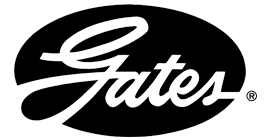
AUTONET TV
Archive for January 2021Stuck! (Vehicle Door Issues)Posted January 31, 2021 7:44 AMThis may have happened to you. You drive somewhere and get out of your vehicle only to try closing the door and it just won't stay closed! What a helpless feeling. You can't lock it; you can't leave it like it is. Or, let's say you head down to your vehicle to head out to work in the morning and you can't open the door. What are you going to do now? Vehicle doors take a lot of abuse. They are opened and closed hundreds of times and we expect them to just keep working perfectly all the time. They do require a bit of tender loving care. Let's take a look at two different scenarios of stuck doors. First: the door that won't close. It's a security issue. It's also a safety issue. You can't really safely drive a vehicle with a door that won't close. What if you or a passenger is tossed out? Sure, some people try to tie a stuck-open door closed or bungee it, but that's dangerous. It's best to get that vehicle to the service repair facility as soon as you can, and having it towed is the safest way. Second: the door that won't open. There are many reasons this can happen. Freezing weather is one, a misaligned door is another. There could be electrical issues. Corrosion could have broken a part inside the door. The possibilities, unfortunately, are numerous. If you can't get into your vehicle's driver's door, with any luck another door might open and you can climb into the driver's seat and head on to the repair facility. A lot of people may be tempted to try to fix a stuck door themselves, but many wind up causing more damage to the door and have to have a trained technician step in to repair the mess. One way to minimize the possibility of having a door stick open or closed is to make sure it gets regular maintenance. Door locks, hinges and latches should be lubricated at certain intervals. Locks should be kept clean. While many vehicles now have electronic locks, sometimes an electrical failure in the vehicle or key fob can inadvertently lock you out. Nearly every vehicle has a mechanical key in case that happens; if you don't know how that works, have your service advisor show you how. Also, you technician can make sure your doors are properly aligned and aren't sagging. All of these things can help you keep your doors opening and closing the way they were designed to. Your next trip may "hinge" on your doors being in top condition.
A Door No One Can Step Through (Fuel Door Repair and Maintenance)Posted January 24, 2021 7:01 AMYour vehicle has lots of doors including that one usually near the back on the vehicle's side. That's the fuel door, something you use every time you gas up. These endure hundreds of open-and-close cycles, usually without any problems. But when they act up, it can be a major inconvenience for you. When they stick in the "open" position, it can present real dilemma. You can still pump your gas, but do you just drive around with that flap sticking out the side? What happens if someone steals the gas cap or it gets damaged? What happens if it rains? Yep, it's decision time. A fuel door that sticks open can be due to a number of factors. The hinge on the door may have broken, possibly from corrosion or it may have been hit sometime. Some vehicles have a cable that operates the door and it could be loose. The latch that holds the door shut could have broken or it, too, could be bent from something hitting it. You probably want to take care of this sometime soon since your gas cap is wide open and unprotected when the door doesn't shut. Plus, it's possible that the door could be torn off completely. Often a stuck open fuel door can be fixed fairly inexpensively and quickly depending on the type of mechanism your vehicle has. Looks like it's an open and shut case. TJ's Auto Center Inc. What is a TPS? (Throttle Position Sensor)Posted January 17, 2021 11:42 AMYou know you have an accelerator pedal; step on it and your vehicle is supposed to go. But did you know there is a part in your vehicle that keeps track of where the throttle is? It's called the Throttle Position Sensor, or TPS. The TPS is a sensor that helps your vehicle figure out the right mix of air and fuel is reaching your engine. It does that by keeping track of the throttle and sending that information to your vehicle's computer. Other factors play a role in how well your engine is performing, including air temperature, how fast the engine is turning over and air flow. When the TPS isn't working right, you may find your vehicle won't accelerate or doesn't have the power you're expecting when you press on the accelerator. In some cases, it may accelerate on its own. Sometimes your vehicle won't go over a certain speed. Your Check Engine light may go on. Any of these symptoms should be checked out soon. If your TPS stops working right, your vehicle may not be safe to drive. Fortunately, most vehicles have a "limp home" mode that will allow you to get off a busy road to a safe spot. Your service advisor can let you know which TPS is the correct replacement for your vehicle. Your shop may have to re-program the new TPS so it works correctly with other software in your vehicle. It's a fact of life these days that computers control many of a vehicle's functions. The sensors that feed information to those computers help make your vehicle work the way it was engineered to and keep you motoring down the road safely and efficiently. TJ's Auto Center Inc. Poor Reflections (Door Mirror Problems)Posted January 10, 2021 8:17 AMMirror, mirror on the door, why is my vision there so poor? Well, you could have a broken outside rearview mirror that's disabled your blind spot vision there and endangering your ability to see some of the traffic around you. Outside rearview (or door) mirrors are important safety devices that are thoughtfully designed to help drivers see. And there are a variety of ways those door mirrors can develop problems. One is when the glass is broken in them. Sometimes it's caused by an accident or vandalism. But without your ability to see in that mirror, you could be driving blind, unable to see drivers approaching from the rear in adjacent lanes. Sometimes it's as simple as having the glass replaced. You'll greatly enhance your safety if you do. Then there's the door mirror that you can't adjust. First, let's look at a common scenario in later models, the power mirror. They're great when they're working, awful when they're not. Sometimes the motor fails, the switch goes bad or the wiring fails to deliver power. Or how about the manually-adjusted door mirror that has either frozen up or just flops around? In this case, the mechanism has corroded, jammed up or a part has broken. In both power- and manually-adjusted door mirrors, it sometimes can be hard to keep them in the right position. Plus, every time there's a driver change, it may be hard to adjust those broken mechanisms by hand. Finally, heated door mirrors can be extraordinarily useful in eliminating fogging or icing up in certain weather conditions. But those heating elements can fail, switches can break or wiring can go bad. Suddenly your fogged over, frozen mirrors aren't doing you any good at all. Good drivers use those outside rearview mirrors all the time. They should be working the way designers intended, to provide the driver with vital traffic position information. That's the kind of safety device you should get fixed or replaced sooner rather than later. It's well worth it if you prevent even one little accident. TJ's Auto Center Inc. Such a Little Part (Climate Control Resistor)Posted January 3, 2021 12:02 PMYou expect your heater/air conditioner to work like it should. You have a control for temperature and one for fan speed. You even have a control for what vents the air comes out of. Don't be surprised one day if your blower fan develops a mind of its own and starts going crazy. Most of the time, you may find that it starts blowing at full speed, and nothing you do to try to control it does any good. This is what may be happening. Your blower motor has an electronic component called a resistor. It does what its name says; it offers resistance. When you want the fan to run more slowly, you turn the fan speed down. That resistor accomplishes that by turning its resistance up. When the resistor fails, the power has nothing to slow it and the fan speeds up. It's a small part and can fail due to age or corrosion. It's usually not an expensive part, either, but it's often found in a location that's not that easy for the technician to get to. That means labor costs will vary depending on the design of your vehicle. Occasionally, a faulty resistor can cause the blower motor not to work at all or only partially come on. But other things can cause that as well, such as a faulty fan switch or vent control. This is where a technician's training comes in. Special equipment can track down precisely where the issue is so you can be assured the correct part is being replaced. It's just not pleasant when the blower motor isn't following orders. Have your service facility check it out so you can be the blower's boss, like it should be. TJ's Auto Center Inc. Steer Clear of Power Steering Problems (Power Steering Maintenance)Posted January 1, 2021 7:26 AMWe usually take our vehicle's easy steering for granted until something goes wrong. Power steering is what makes it almost effortless to turn the steering wheel, aiming your vehicle in the direction you want to go. Without the assistance of power from the engine, steering would be a laborious process, so you want to make sure the system is working well. Power steering systems are usually one of two types, hydraulic and electric. The hydraulic type uses a pump that is driven by either a belt or an electric motor. This system uses hydraulic fluid to create pressure that gives your steering the power assist. Since that pump is always working, time and distance traveled eventually take their toll, and these systems need to be periodically inspected. Also, while that hydraulic fluid can last for years, it should be replaced periodically as it degrades over time. Your vehicle's owner's manual contains the manufacturer's recommendations. A technician can check for leaks in the hoses, pump housing or reservoir. Also, the belts should be inspected and so should the pump, as these can fail. Signs of a failing pump are a groaning noise when you turn the steering wheel, stiff steering, squealing noises when you first start your car and puddles of a reddish-brown fluid under your vehicle. The other type is called EPS, or electric power steering, which is becoming more commonly used in the latest vehicles. It only delivers power assist when you need it and has an electric motor that supplies that steering help. It's more efficient, accurate, compact and clean. And because it has a lot fewer components, it's easier to maintain. If you have electric power steering, you may notice sometimes it's hard to turn the wheel or your Check Engine light comes on. Sometimes the power assist motor fails or there can be problems with electrical connections. Any time you have symptoms, it's important for your safety and that of drivers around you that you have a technician check them out. Properly working brakes are essential for the safe operation of any vehicle. Stop! And make sure yours are working properly.
| ||
SearchArchiveJune 2010 (71)July 2010 (4) August 2010 (4) September 2010 (4) October 2010 (4) November 2010 (4) December 2010 (4) January 2011 (4) February 2011 (4) March 2011 (4) April 2011 (5) May 2011 (5) June 2011 (4) July 2011 (4) August 2011 (5) September 2011 (4) October 2011 (4) November 2011 (5) December 2011 (4) January 2012 (5) February 2012 (2) March 2012 (5) April 2012 (4) May 2012 (5) June 2012 (4) July 2012 (5) August 2012 (4) September 2012 (4) November 2012 (1) December 2012 (2) March 2013 (1) April 2013 (3) May 2013 (2) October 2013 (5) November 2013 (2) January 2014 (2) February 2014 (3) March 2014 (1) July 2014 (4) August 2014 (7) September 2014 (4) October 2014 (5) November 2014 (4) December 2014 (5) January 2015 (4) February 2015 (4) March 2015 (4) April 2015 (4) May 2015 (3) June 2015 (5) July 2015 (2) September 2015 (2) October 2015 (4) November 2015 (5) December 2015 (2) February 2016 (2) March 2016 (4) April 2016 (4) May 2016 (5) June 2016 (4) July 2016 (5) August 2016 (4) September 2016 (4) October 2016 (5) November 2016 (4) December 2016 (4) January 2017 (5) February 2017 (4) March 2017 (4) April 2017 (3) May 2017 (5) June 2017 (4) July 2017 (5) August 2017 (4) September 2017 (2) October 2017 (5) November 2017 (4) December 2017 (3) January 2018 (5) February 2018 (4) March 2018 (4) April 2018 (4) May 2018 (4) June 2018 (4) July 2018 (5) August 2018 (4) September 2018 (5) October 2018 (3) March 2019 (4) May 2019 (2) June 2019 (5) July 2019 (2) August 2019 (1) September 2019 (4) October 2019 (5) November 2019 (4) December 2019 (5) January 2020 (5) February 2020 (4) March 2020 (5) April 2020 (1) May 2020 (2) July 2020 (1) August 2020 (5) September 2020 (4) October 2020 (4) November 2020 (5) December 2020 (4) January 2021 (6) February 2021 (4) March 2021 (4) April 2021 (4) May 2021 (5) June 2021 (4) July 2021 (4) August 2021 (5) September 2021 (3) October 2021 (5) November 2021 (4) December 2021 (4) January 2022 (6) February 2022 (4) March 2022 (4) April 2022 (4) May 2022 (5) June 2022 (4) July 2022 (5) September 2022 (4) October 2022 (5) November 2022 (4) December 2022 (4) January 2023 (5) February 2023 (4) March 2023 (4) April 2023 (5) May 2023 (4) June 2023 (4) July 2023 (5) August 2023 (4) September 2023 (3) October 2023 (2) January 2024 (1) February 2024 (4) April 2024 (1) May 2024 (3) June 2024 (5) July 2024 (4) August 2024 (4) September 2024 (5) October 2024 (4) November 2024 (4) December 2024 (4) | CategoriesWinter Prep (6)Tire Pressure Monitoring System (1)Shocks and Struts (4)Engine Air Filter (4)Warranty (1)Headlamps (6)Alignment (9)Check Engine Light (5)Maintenance (19)Parts (1)Differential Service (3)Cabin Air Filter (3)Steering (12)Fluids (8)Cooling System (10)Tires and Wheels (6)Tire Rotation and Balancing (4)Drive Train (5)Exhaust (11)Older Vehicles (2)Automotive News (4)Wheel Bearings (2)Fuel System (10)Service Intervals (3)Service Standards (5)Air Conditioning (10)Inspection (5)Battery (13)Brakes (17)Keys to a long lasting vehicle (2)Timing Belt (5)Fuel Economy (8)Transmission (5)Alternator (7)Auto Safety (5)Safety (2)What Customers Should Know (83)Fuel Saving Tip: Slow Down (2)Dashboard (1)Windshield Wipers (3)Oil Change (9)Customer Detective Work (1)Shocks & Struts (3)Safe Driving (1)Water Pump (2)Tires (12)Suspension (2)TPMS (3)Spark Plugs (2)Winter Tires (1)Fuel Pump (1)Brake Service (6)PCV Valve (1)Trip Inspection (2)Transfer Case Service (1)Fuel Filter (1) | |

OUR REVIEWS


Howard L.The business always does a great job and takes care of him. They are very polite.











